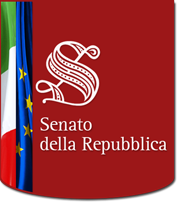The Making of European Legislation
Law 234 of 2012 establishes that every EU measure and the relating preparatory work (including white and green papers and communications) should be sent by the Government to Parliament for referral to a committee. On examining such draft measure, the committee shall issue an opinion and provide recommendations to the Government. The Government is also requested to provide a report including information on the status of negotiations, the impact of the measure on Italian legislation and any opinions provided by advisors. When sending draft measures to Parliament, the Government shall indicate the date when such matters are scheduled for consideration or approval in the Union.
In addition to Law no. 234, two other instruments ensure the involvement of the Senate in the European law-making process: the Lisbon Treaty - which vests national parliaments with subsidiarity compliance checks - and the "political dialogue", launched by the European Commission in June 2006.
An important innovation brought about by Law 11 of 2005 and confirmed by Law 234 of 2012 is the introduction of the Parliamentary reservation. Article 10 of Law 234 establishes that a chamber of parliament may, when considering legislation proposed by the Union or documents sent by the Government, request the Government to withhold its legislative action only after parliamentary consideration has been completed or after thirty days have passed without any opinion having been issued by the Parliament. Such thirty-day period shall commence when the Government announces to the EU Council of Ministers that the measure is the object of parliamentary reservation. Such reservation may also be raised by the Government for legislative measures or other actions of particular political, economic or social significance.
With respect to the role of Parliament to guide and control the Government, Senate Rule 144 lays down that Parliamentary Committees should consider - each according to their jurisdiction - the draft measures notified by the Government or published in the Official Journal of the European Union, as well as the information reports issued by the Government on relevant EU processes and on compliance of existing national measures with the European measure under scrutiny; for this purpose, the opinions of the Foreign Affairs Committee and the European Policies Committee are obtained. Whenever it so decides, a Committee may issue a paper to guide Government action in EU-level negotiations. Senate Rule 29 establishes that the programme and agenda of each committee be set in such a way to ensure timely scrutiny of the preparatory documents of European legislation. Finally, Senate Rule 144-quater lays down that a Committee may - for the subjects over which it has jurisdiction - gather information from members of the European Parliament and the European Commission.




